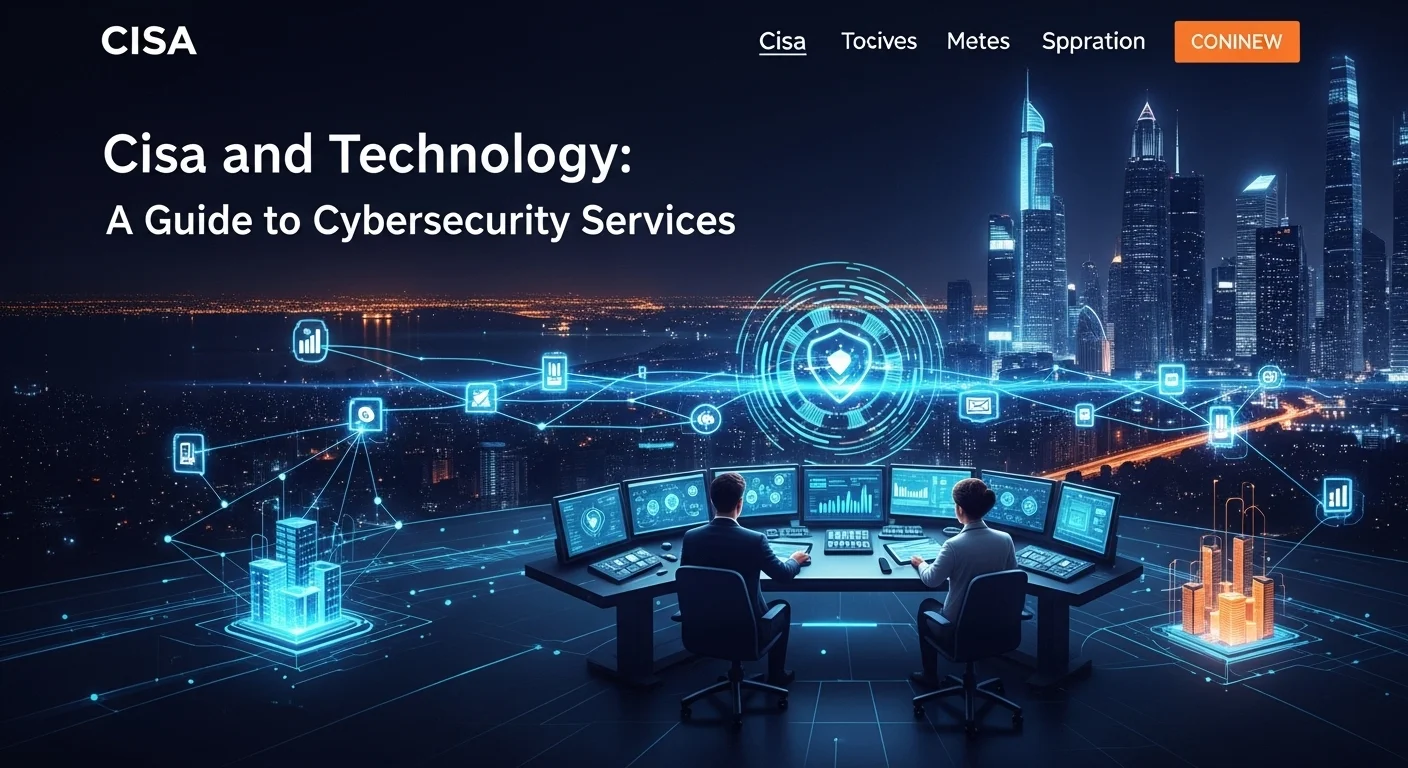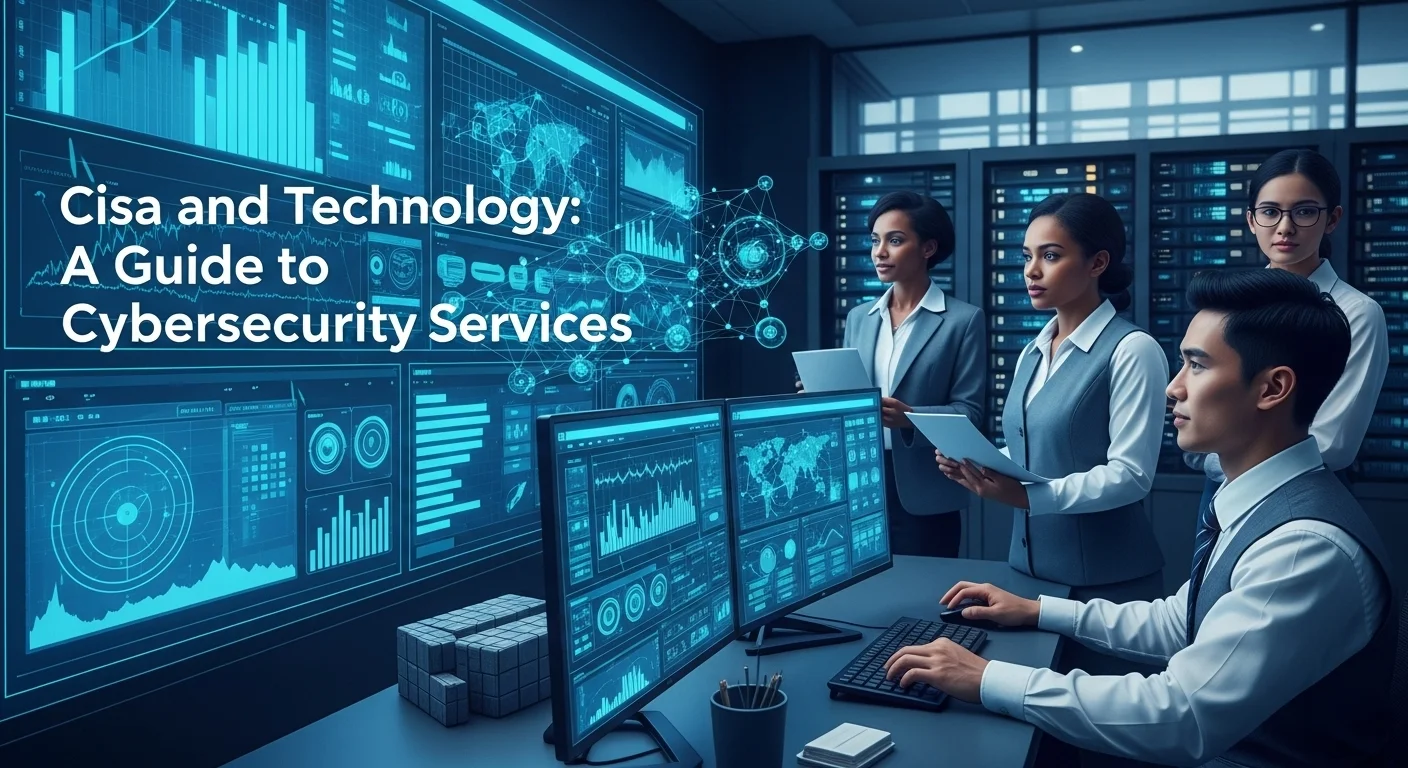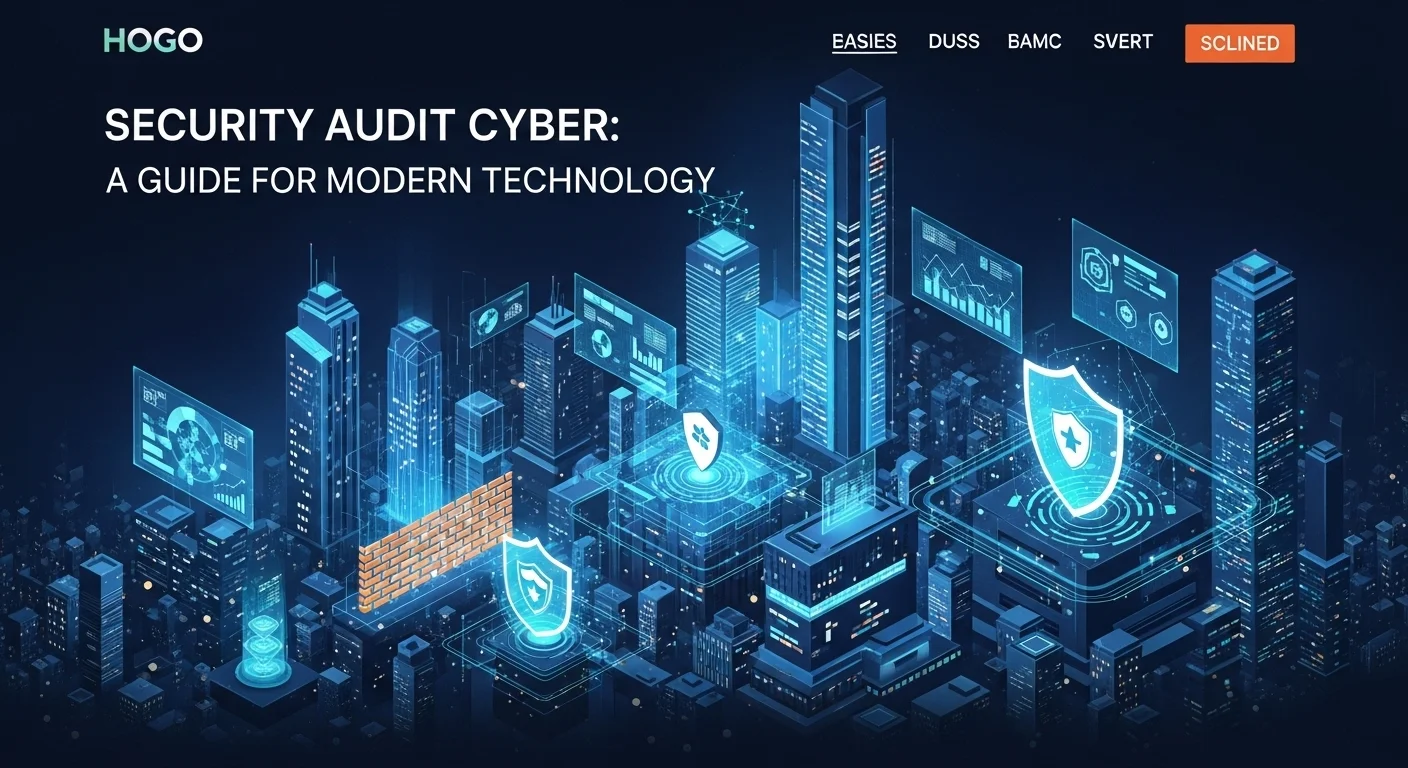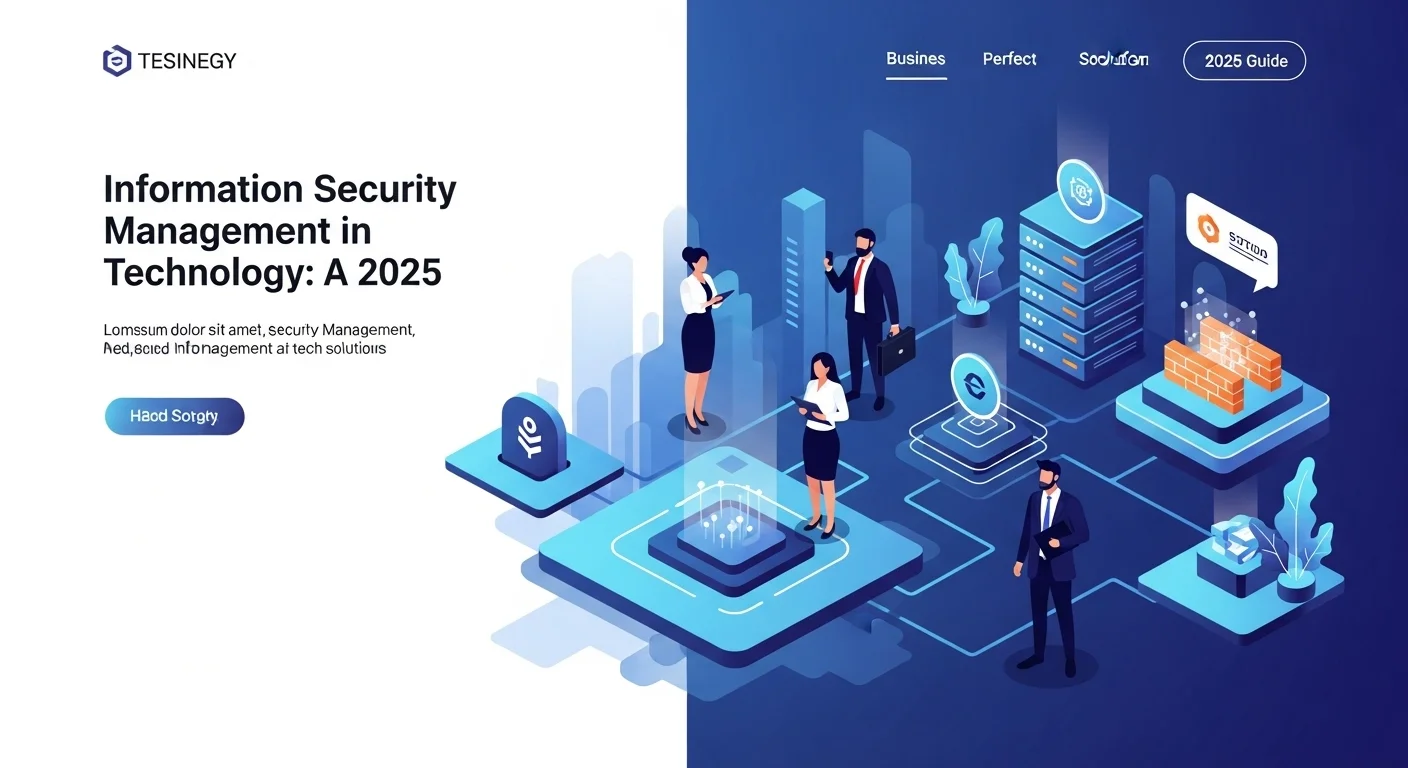Unlocking CISA: Your Guide to Free Government Cybersecurity for Your Business

Executive Summary
As someone who's spent years in the cybersecurity trenches, I can tell you that one of the biggest game-changers for American businesses is CISA. But it's often misunderstood. This isn't just another government agency buried in bureaucracy; it's your partner in cyber defense, offering powerful, and often free, tools that can dramatically improve your security. I've seen firsthand how leveraging their resources can be the difference between a minor incident and a catastrophic breach. In this guide, I'll cut through the jargon and show you exactly how to use CISA's services—from alerts and health checks to incident response—to protect your company, whether you're a small startup or a large enterprise.
Table of Contents
Table of Contents
What is CISA and Why Does It Matter for Your Business?
In a world where almost every aspect of business is digital, cybersecurity isn't just an IT problem—it's a fundamental business risk. That's where the Cybersecurity and Infrastructure Security Agency, or CISA, comes in. Established in 2018, CISA is the nation's lead agency for cyber defense. Think of them as the country's dedicated team of guardians for both our digital and physical infrastructure. Their mission isn't just about protecting government networks; it's about forming a collaborative defense that includes businesses like yours. For anyone in tech or running a business, understanding CISA isn't just useful; I'd argue it's essential for survival and growth.
CISA's Role Within Homeland Security
To really get CISA, you have to see where it fits. CISA is a key part of the U.S. Department of Homeland Security (DHS). This relationship is a huge advantage. Imagine DHS as the strategic command center for national security, dealing with everything from borders to natural disasters. Within that structure, CISA is the specialized operational force for cybersecurity. This gives them incredible access to intelligence and the authority to coordinate a unified response to threats. It means that when you get guidance from CISA, it's not coming from an isolated group; it's informed by the highest levels of national security intelligence. This connection is what makes their work so powerful and authoritative.
Why CISA is Crucial in Today's Tech World
The importance of CISA in technology today can't be overstated. Every new app, cloud service, or connected device we use expands the potential entry points for attackers. CISA's job is to be both a shield and a guide in this complex landscape. They provide a range of services designed to raise the security baseline for the entire country, from Fortune 500 companies to the smallest local businesses. In my experience, many companies are so focused on their own operations that they miss the bigger threat picture. CISA provides that perspective. By engaging with them, you're not just protecting your own network; you're becoming part of a national collective defense, making everyone safer.
An Overview of CISA's Core Support
So, what does CISA actually do for a business? It boils down to three key areas of support that I always advise my clients to explore.
Timely Security Alerts: Your Early Warning System
One of CISA's most visible functions is issuing security alerts. These aren't generic news updates; they are specific, actionable warnings about active threats, new vulnerabilities, and attacker tactics. For an IT team, these alerts are pure gold. They tell you exactly what to look for and how to fix it, allowing you to patch a vulnerability before it gets exploited. Acting on these alerts is one of the most basic, yet critical, steps any organization can take to improve its security posture.
Proactive Cyber Hygiene: Your Free Security Check-up
This is probably the most valuable freebie on the internet for businesses. CISA's Cyber Hygiene services program offers, at no cost, vulnerability scanning for your company's internet-facing systems. They essentially give your network a regular health check-up, sending you a weekly report on any weaknesses they find. For small and medium-sized businesses that can't afford expensive commercial scanning tools, this service is an absolute game-changer. It levels the playing field and gives you the insights you need to lock down your digital front door.
Expert Incident Response: The Backup You Hope You Never Need
If the worst happens and you experience a breach, CISA's incident response teams are there to help. They provide expert technical assistance to help you understand what happened, kick the attackers out, and recover. Having access to this level of forensic expertise can be the difference between a contained event and a company-ending disaster. Their involvement not only helps your organization but also feeds critical information back into the national defense system, helping to protect others from similar attacks.

A Complete Guide to CISA's Business and Technology Solutions
Let's move from the 'what' to the 'how.' Actually using CISA's resources is straightforward once you know where to look. This is your practical guide to integrating their powerful—and mostly free—solutions into your business operations. I've seen these tools transform a company's security from a source of anxiety into a position of strength.
A Deep Dive into Core CISA Services
CISA's support can be broken down into three main categories: proactive defense to stop attacks before they start, situational awareness to understand the threat landscape, and incident management for when things go wrong.
1. Proactive Defense: CISA's Cyber Hygiene Services
I always tell my clients, 'Before you spend a dime on security tools, get your free CISA scan.' Their Cyber Hygiene program is a proactive approach to finding and fixing vulnerabilities. Here’s the breakdown:
- Vulnerability Scanning: After a simple sign-up process, CISA will begin continuously and automatically scanning your public-facing systems for known vulnerabilities. It’s like having a 24/7 security guard checking your digital doors and windows. You get a weekly report that clearly lists any issues, so your team can focus on fixing what matters most. I've seen businesses reduce their attack surface by over 80% in just a few months using this service alone.
- Web Application Scanning (WAS): CISA also scans your public websites for common coding flaws that lead to hacks, like SQL injection. It's a deeper look specifically at your web presence, which is often a primary target for attackers.
- Phishing Campaign Assessment: To test your team's awareness, CISA can run a simulated phishing attack. It's a safe way to see how vulnerable your employees are to social engineering and helps you target your security training where it's needed most.
Getting started is as simple as sending an email to CISA's vulnerability team to request the service. It’s one of the highest-value, zero-cost actions you can take for your cybersecurity.
2. Situational Awareness: CISA Security Alerts
Think of CISA's security alerts as your personal threat intelligence feed. To make them truly effective, you need a process:
- Subscribe and Assign: First, subscribe to their email lists. More importantly, assign someone on your team the responsibility of monitoring these alerts daily.
- Analyze and Act: When an alert comes in, the first question is, 'Does this apply to us?' If it mentions software or hardware you use, your team needs to act on the mitigation advice immediately.
- Prioritize with the KEV Catalog: Pay special attention to the Known Exploited Vulnerabilities (KEV) catalog. This is CISA's 'most wanted' list for bugs that hackers are actively using right now. For any business, this catalog should be your top priority for patching. It removes the guesswork and tells you exactly where your biggest risks are.
3. Incident Management: CISA's Incident Response Team
When a breach occurs, time is critical. CISA's incident response service provides expert help to get you through it. Their team can help you with:
- Finding the Source: They'll conduct forensic analysis to figure out how the attackers got in and what they did.
- Containment: They provide expert advice on how to isolate the problem and remove the adversary from your network for good.
- Recovery: They'll guide you on restoring your systems and hardening your defenses to prevent a repeat performance.
You can report an incident through CISA's online portal. Remember, calling them doesn't just help you; the information you share helps CISA warn and protect other potential victims across the country.
The CISA and DHS Connection: A Force Multiplier
The fact that CISA is part of the Department of Homeland Security is a massive advantage. It gives them a direct line to national intelligence, allowing them to see threats that no single company could ever see on its own. For you, this means the advice and alerts you receive from CISA are backed by an unparalleled level of insight. When you work with CISA, you're tapping into a network that is at the very center of the nation's cyber defense strategy.
CISA vs. Private Sector Solutions: A Partnership Approach
A common question I get is, 'Do I still need my IT provider if I use CISA?' The answer is a resounding 'Yes!' Think of CISA's services as the strong foundation of your security house. They are not designed to replace your existing security solutions but to complement and empower them.
- CISA provides the baseline: Their free scanning and alerts give you an essential, broad-stroke view of your external security.
- Private firms provide the customization: A Managed Security Service Provider (MSSP) can offer tailored, 24/7 monitoring of your internal network, manage your firewalls, and respond under a contractual service-level agreement (SLA).
The best strategy is to use both. Let CISA provide the foundational security and intelligence at no cost, and then use commercial tools and services to build upon that foundation, addressing your company's unique risks and compliance needs. It's a cost-effective, defense-in-depth approach that makes you far more resilient.

Tips and Strategies: Putting CISA to Work for Your Business
Knowing about CISA is one thing; actively using their resources to improve your technology and security is another. It's about moving from being a passive observer to an active defender. Here are my go-to tips and strategies for making CISA a core part of your business operations, no matter your company's size.
Your Practical Roadmap for CISA Engagement
If you're wondering where to begin, here is a simple, step-by-step plan that I walk my clients through:
- Start with the Free 'Health Check'. The first, most impactful step is to sign up for CISA's Cyber Hygiene services. It costs nothing. Designate someone on your team to email CISA and get the process started. Once the weekly vulnerability reports start coming in, make discussing them a regular part of your IT meetings. This creates a rhythm of continuous improvement and gives you a clear, data-driven path to hardening your defenses.
- Make CISA Alerts Actionable. Don't just let the security alerts pile up in an inbox. Create a simple process: when an alert arrives, someone is responsible for determining if it's relevant. If it is, a ticket should be created in your tracking system to ensure the recommended action is taken. For anything on the KEV (Known Exploited Vulnerabilities) list, treat it as an emergency that requires immediate attention. This turns information into action.
- Build CISA into Your Emergency Plan. Every business should have an Incident Response (IR) plan. Review yours today and add a section for CISA. Include the link to their reporting portal and the contact information for your regional CISA office. By planning ahead, you ensure that if a crisis hits, you're not trying to figure out who to call. You'll know exactly how to leverage their expert response teams.
Advanced Strategies for a Deeper Partnership
Once you have the basics down, you can take your engagement to the next level.
- Adopt CISA's Frameworks. CISA publishes fantastic resources like the Cybersecurity Performance Goals (CPGs). These are not complex, thousand-page documents; they are a concise set of common-sense security practices. Aligning your efforts with the CPGs ensures you're putting your resources where they'll have the biggest impact against real-world threats.
- Become an Information Sharer. Security is a team sport. CISA's power grows with the data it receives from the private sector. Look into their Automated Indicator Sharing (AIS) program. By contributing anonymized threat data from your own network, you help CISA and everyone else in the program spot and block new attacks much faster. It's a true 'give-to-get' ecosystem.
- Use CISA's Training Resources. CISA offers a ton of free training courses and self-assessment tools like CSET (Cyber Security Evaluation Tool). Encourage your staff to use these for professional development. Running a CSET assessment once a quarter is a great way to measure your security maturity and identify gaps before an attacker does.
Best Practices for a Secure Future
To really embed this in your company culture, follow these best practices:
- Integrate, Don't Isolate: Don't keep CISA's intelligence in a silo. Pipe the vulnerability data from their scans directly into your IT team's ticketing system. Load the threat indicators from their alerts into your security tools like firewalls and endpoint detection systems. Automation is key to making threat intelligence effective.
- Build Local Relationships: CISA has cybersecurity advisors in regions all across the country. Find and connect with yours. Having a personal relationship with a local CISA representative is invaluable. They can offer tailored advice and be a trusted contact in a crisis.
- Use CISA for Training: An alert about a new phishing campaign is a perfect, real-world example to share with your entire company. Use CISA's findings to make your security awareness training relevant and timely.
By embracing the full spectrum of CISA's services, you're not just complying with best practices; you're building a smarter, more resilient organization. This public-private partnership is our best defense in securing our shared digital world. For real-time, actionable guidance you can use today, I highly recommend visiting the official CISA Shields Up webpage, which provides concrete steps for all organizations to raise their defenses.
Expert Reviews & Testimonials
Sarah Johnson, Business Owner ⭐⭐⭐⭐
As a business owner, this was a helpful start. I now understand what CISA offers, though I would have loved a simple checklist to follow for implementation.
Mike Chen, IT Consultant ⭐⭐⭐⭐
Solid article that clarifies CISA's role. It helped me connect the dots between their different services. A great resource to share with clients who are new to the topic.
Emma Davis, Tech Expert ⭐⭐⭐⭐⭐
Fantastic and thorough breakdown of CISA. As a tech professional, I appreciated the clear distinction between CISA's role and private-sector services. Everything was explained perfectly.



